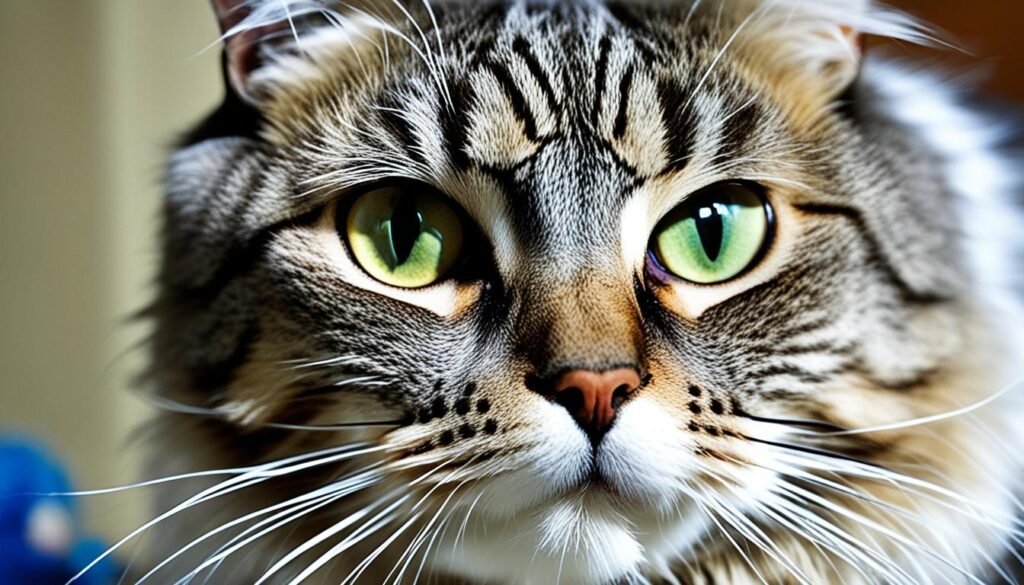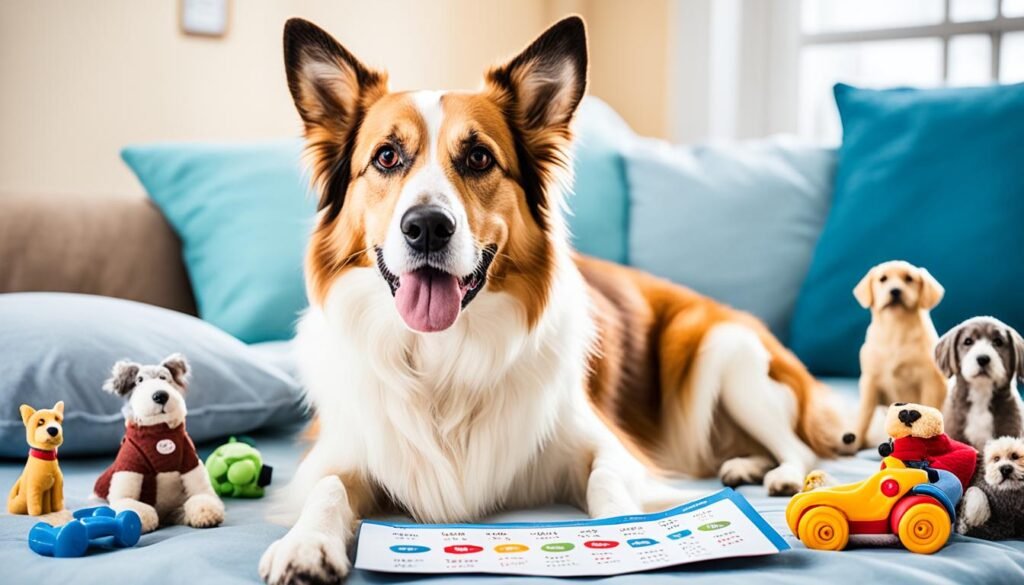As pet owners, we forge a deep bond with our furry companions. They become more than just pets; they become cherished members of our families. And just like us, they experience the inevitable effects of aging.
It was a sunny afternoon when I first noticed the signs of aging in my beloved senior dog, Max. His once vibrant energy had diminished, and he started moving more slowly. Watching him struggle with everyday activities broke my heart. That’s when I realized the importance of senior pet care.
Senior pet care is not just about addressing their health issues or providing comfort; it’s about ensuring their quality of life in their later years. It’s about giving them the love and attention they deserve for all the joy they’ve brought into our lives.
In this article, we’ll explore the expert advice and essential tips for senior pet care, from recognizing the signs of aging to adjusting their environment for optimal comfort. We’ll also delve into nutrition considerations, routine veterinary care, and the compassionate end-of-life support they need.
Key Takeaways:
- Senior pet care is crucial to ensure the comfort and well-being of aging pets.
- Recognizing signs of aging and addressing age-related health issues is vital for senior pet wellness.
- Adjusting your home to cater to your aging pet’s needs can improve their mobility and safety.
- Proper nutrition, including essential diet changes and supplements, plays a crucial role in senior pet health.
- Routine veterinary care, regular check-ups, and managing chronic conditions are essential for older pets.
Understanding the Special Needs of Senior Pets
As pets age, they require special attention and care to maintain their health and well-being. Recognizing the signs of aging in pets is crucial for early intervention and ensuring their comfort.
Recognizing Signs of Aging in Pets
It is important to be aware of the signs that may indicate your pet is aging. Look out for decreased activity levels, changes in appetite, difficulty moving, or any other unusual behaviors. Early recognition of these signs allows for prompt veterinary intervention and appropriate care.
Common Age-Related Health Issues
Senior pets are prone to certain health issues that can impact their quality of life. Some of the most common age-related health issues include:
- Arthritis: Joint pain and stiffness can make it difficult for senior pets to move comfortably.
- Dental problems: Tooth decay and gum disease can cause pain and affect their ability to eat.
- Cognitive decline: Senior pets may experience cognitive dysfunction, leading to confusion, disorientation, and changes in behavior.
Adjusting Your Home for an Aging Pet
Creating a safe and comfortable environment for your aging pet is essential. Consider making the following adjustments to your home:
- Provide soft bedding: Senior pets may benefit from a comfortable and supportive bed to alleviate joint pain.
- Install ramps or stairs: Help your pet navigate elevated surfaces or stairs with ease by providing ramps or stairs.
- Ensure a safe environment: Remove obstacles and hazards that may cause your pet to trip or fall.
Nutritional Considerations for Elderly Pet Health
Proper nutrition plays a vital role in supporting the health of senior pets. As our furry friends age, their nutritional needs change, and it’s important to make adjustments to their diet to ensure they stay healthy and happy.
Essential Diet Changes for Senior Pets
One of the key considerations in senior pet care is making essential diet changes. This may include adjusting the type and quantity of food they consume to accommodate their changing nutritional needs. Older pets often require fewer calories to maintain a healthy weight and may benefit from increased fiber to support digestive health. It’s best to consult with your veterinarian to determine the appropriate diet for your senior pet.
Supplements and Vitamins for Elderly Pets
In addition to a balanced diet, supplements and vitamins can provide added support for the overall well-being of elderly pets. Certain supplements, such as glucosamine and chondroitin, can help promote joint health and alleviate arthritis symptoms. Omega-3 fatty acids are beneficial for skin and coat health, while antioxidants aid in maintaining cognitive function. Always consult with your veterinarian before introducing any supplements or vitamins to your pet’s routine.
Hydration and Feeding Schedules
Hydration is crucial for senior pets, as dehydration can impact their overall health and exacerbate age-related conditions. Make sure your pet always has access to fresh water and monitor their water intake to ensure they stay properly hydrated. Additionally, establishing a regular feeding schedule can help maintain consistent nourishment for your senior pet. This can be especially beneficial if they have any medical conditions or require medication that needs to be administered with meals.
| Hydration Tips for Senior Pets | Feeding Schedule Guidelines |
|---|---|
|
|
By prioritizing essential diet changes, incorporating supplements and vitamins under veterinary guidance, and monitoring their hydration and feeding schedules, you can ensure that your senior pet receives the necessary nutritional support for their overall well-being and longevity.
Senior Pet Care: Health Issues, Comfort, End-of-Life Care
In the later years of their lives, senior pets may experience various health issues that require special care and attention. Understanding these health issues and providing comfort and compassionate end-of-life care is essential for ensuring their overall well-being.
Sometimes, senior pets may develop age-related conditions such as arthritis, dental problems, or cognitive decline, which can impact their quality of life. It is important to be aware of these conditions and take appropriate measures to alleviate discomfort and promote a higher level of comfort.
Creating a comfortable and supportive environment for your senior pet is crucial. You can achieve this by providing soft bedding, ensuring easy access to their favorite spots, and minimizing potential hazards in their surroundings.
Additionally, when it comes to end-of-life care, it’s essential to approach the situation with compassion and make informed decisions based on your pet’s individual needs. Discussing your pet’s condition with a veterinarian can help you understand the options available and ensure that your pet receives the best possible care during this stage of their life.
By prioritizing senior pet care, addressing health issues, and providing comfort and end-of-life care, you can ensure that your aging furry companion enjoys a higher quality of life and experiences comfort throughout their golden years.
Veterinary care for older pets.
Regular veterinary care is crucial in maintaining the health and well-being of older pets. As our furry companions age, they become more susceptible to various health issues. Routine check-ups and preventive measures are essential for early detection, prevention, and effective management of these issues.
Regular Check-Ups and Preventive Measures
Regular check-ups are a fundamental aspect of senior pet care. During these visits, your veterinarian will assess your pet’s overall health, check for any signs of illness or discomfort, and recommend preventive measures to keep them healthy.
- Scheduling annual or bi-annual check-ups allows your veterinarian to closely monitor your older pet’s health, detect any changes or underlying conditions early on, and provide appropriate interventions.
- Vaccinations: Keeping your pet’s vaccinations up to date is crucial in preventing diseases that can be particularly harmful to senior pets.
- Parasite Control: Regular flea, tick, and heartworm prevention are essential to protect senior pets from parasites that can cause serious health issues.
- Diagnostic Tests: Your veterinarian may recommend regular blood tests, urinalysis, and other diagnostic screenings to assess your pet’s organ function, detect underlying conditions, and monitor the effectiveness of any ongoing treatments.
By staying proactive with regular check-ups and preventive measures, you can help ensure that your older pet remains in optimal health.
Managing Chronic Conditions
Senior pets may develop chronic conditions such as arthritis, kidney disease, diabetes, or heart disease. Managing these conditions requires close collaboration between you and your veterinarian.
“Caring for a pet with a chronic condition requires ongoing monitoring and tailoring of treatment plans to meet their individual needs.”
Your veterinarian will work with you to develop a comprehensive management plan that may include:
- Medications: Your veterinarian may prescribe medications to manage pain, reduce inflammation, regulate blood sugar levels, or support heart function.
- Dietary Modifications: Senior pets with chronic conditions may benefit from a special diet tailored to their specific needs, such as low sodium or prescription diets.
- Weight Management: Maintaining a healthy weight is crucial for senior pets with chronic conditions as it can alleviate strain on joints, organs, and overall mobility.
- Physical Therapy: Your veterinarian may recommend physical therapy exercises or rehabilitation techniques to improve mobility, alleviate pain, and enhance your pet’s quality of life.
Regular follow-up visits will allow your veterinarian to adjust the treatment plan as needed, monitor your pet’s progress, and address any concerns or complications that may arise.
Understanding Veterinary Recommendations and Treatments
Properly understanding your veterinarian’s recommendations and treatments is paramount in ensuring your senior pet receives the best possible care.
- Be an active participant in your pet’s healthcare by asking questions, voicing concerns, and actively engaging in discussions with your veterinarian.
- Advocate for your pet’s needs and provide relevant information about their behavior, diet, and any changes you’ve noticed.
- Understand the purpose, benefits, and potential risks of recommended treatments, including medications, procedures, and therapies.
- Follow your veterinarian’s instructions regarding medication administration, dosage, and frequency. Regularly monitor and report any changes or side effects.
Building a strong partnership with your veterinarian ensures that your senior pet receives optimal care and that you are well-informed about their health and treatment options.
| Benefits of Routine Veterinary Care for Older Pets | Preventive Measures | Managing Chronic Conditions | Understanding Veterinary Recommendations and Treatments |
|---|---|---|---|
| Early detection of health issues | Vaccinations | Medications | Active communication with your veterinarian |
| Prevention of potential health problems | Parasite control | Dietary modifications | Advocating for your pet’s needs |
| Timely interventions for effective treatment | Diagnostic tests | Weight management | Understanding treatment purposes and risks |
| Promotion of overall health and well-being | Physical therapy | Proper administration of medications |
Conclusion
In conclusion, senior pet care is a vital aspect of ensuring the well-being and happiness of our aging furry companions. By taking a holistic approach that addresses their specific needs, health issues, comfort, and compassionate end-of-life care, we can help them enjoy their golden years to the fullest.
Understanding the signs of aging in our pets is crucial for early intervention. By recognizing changes in their behavior, activity levels, and appetite, we can provide the necessary support and care they require. Making adjustments to their environment, such as providing soft bedding, ramps, or stairs, and ensuring a safe and comfortable living space, can help them navigate their surroundings with ease.
Proper nutrition plays a significant role in supporting the health of senior pets. Adapting their diet to cater to their changing nutritional needs, incorporating essential diet changes, and considering supplements and vitamins can promote their overall well-being. Additionally, establishing a regular feeding schedule and ensuring adequate hydration are essential for their optimal health.
Routine veterinary care is crucial for maintaining the health of older pets. Regular check-ups, preventive measures, and managing chronic conditions through collaboration with veterinarians give our senior pets the best possible care. By understanding veterinary recommendations and treatments, we can make informed decisions that ensure the health and well-being of our beloved companions.
As our pets age, they deserve the same love, care, and attention as always. With the right support and care, they can continue to thrive and enjoy a comfortable and fulfilling life. Embracing senior pet care allows us to cherish the special bond we share with our aging pets and make their golden years as enjoyable as possible.









